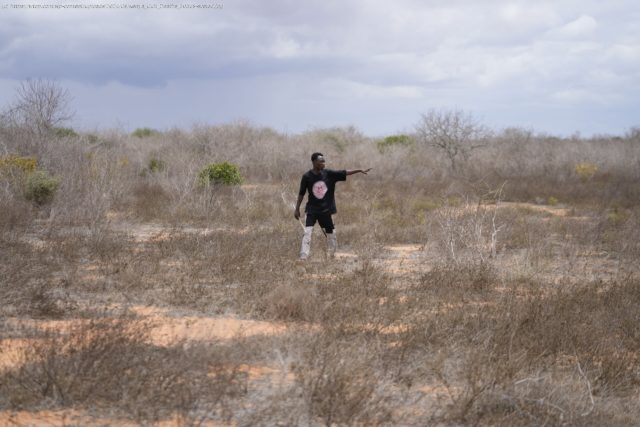MALINDI, Kenya (AP) — Shukran Karisa Mangi always showed up drunk at work, where he dug up the bodies of doomsday cult members buried in shallow graves.
Shukran Karisa Mangi always showed up drunk at work, where he dug up the bodies of doomsday cult members buried in shallow graves. But the alcohol couldn’t numb his shock the morning he found the body of a close friend, whose neck had been twisted so severely that his head and torso faced opposite directions.
This violent death upset Mangi, who had already unearthed children’s bodies. The number of bodies kept rising in this community off Kenya’s coastline where extremist evangelical leader Paul Mackenzie is accused of instructing his followers to starve to death for the opportunity to meet Jesus.
While he sometimes sees the remains of others when he tries to sleep, Mangi said recently, the recurring image of his friend’s mutilated body torments him when he’s awake.
“He died in a very cruel manner,” said Mangi, one of several gravediggers whose work was suspended earlier in the year as bodies piled up in the morgue. “Most of the time, I still think about how he died.”
In one of the deadliest cult-related massacres ever, at least 436 bodies have been recovered since police raided Good News International Church in a forest some 70 kilometers (40 miles) inland from the coastal town of Malindi. Seventeen months later, many in the area are still shaken by what happened despite repeated warnings about the church’s leader.
Mackenzie pleaded not guilty to charges in the murders of 191 children, multiple counts of manslaughter and other crimes. If convicted, he would spend the rest of his life in prison.
Some in Malindi who spoke to The Associated Press said Mackenzie’s confidence while in custody showed the wide-ranging power some evangelists project even as their teachings undermine government authority, break the law, or harm followers desperate for healing and other miracles.
It’s not only Mackenzie, said Thomas Kakala, a self-described bishop with the Malindi-based Jesus Cares Ministry International, referring to questionable pastors he knew in the capital, Nairobi.
“You look at them. If you are sober and you want to hear the word of God, you wouldn’t go to their church,” he said. “But the place is packed.”
A man like Mackenzie, who refused to join the fellowship of pastors in Malindi and rarely quoted Scripture, could thrive in a country like Kenya, said Kakala. Six detectives have been suspended for ignoring multiple warnings about Mackenzie’s illegal activities.
Kakala said he felt discouraged in his attempts to discredit Mackenzie years ago. The evangelist had played a tape of Kakala on his TV station and declared him an enemy. Kakala felt threatened.
“Those were some of his powers, and he was using them,” Kakala said.
Kenya, like much of East Africa, is dominated by Christians. While many are Anglican or Catholic, evangelical Christianity has spread widely since the 1980s.






